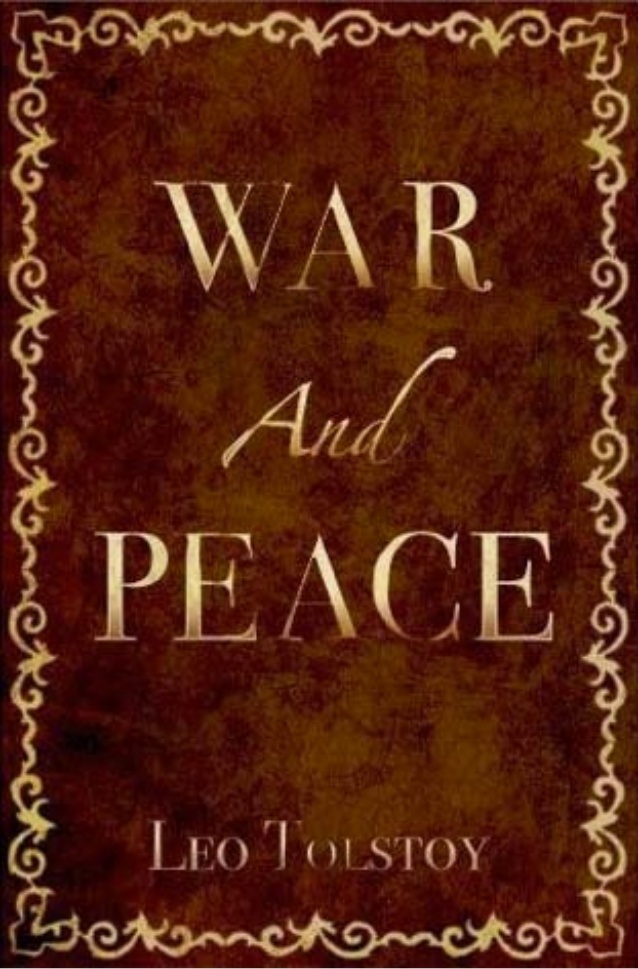Moments ago I finished Tolstoy’s monstrous tome War and Peace, and mentally speaking it feels like I’ve just completed an ultra-marathon or summitted some kind of literary mountain. It took me nearly four months, but it’s done and I can finally move on. For such a sedentary activity, it has me feeling strangely elated.
This isn’t the first time I took a crack at the ol’ W&P. I first attempted it about a decade ago, became bored within the first fifty pages, then put it down. It’s by no means a boring book—I swear—but it doesn’t have the most enthralling opening. As far as mountains go, it’s a bit of walk before you start the climb.
As an undeniable literary nerd/addict, this failure was so disappointing that I overcompensated by casting no small amount of ire toward the great novel, slandering it and Tolstoy for every reason I could drum up. I’d even gone so far as insisting that I had no use for it, and would never pick it up again.
Then the pandemic hit, and with the resulting lockdowns all of us found ourselves with more time on our hands than usual. Some people took up baking bread. I decided to read—a lot. Or perhaps in my case, I should say even more than usual.

My War with War and Peace
The edition of War and Peace that I went with clocked in at just over 1,300 pages, ranking it among the longest novels ever written. Going in I decided to maintain a pace of at least fifteen pages a day, and while I could have aimed for more, I was reading several other books concurrently, so that fifteen a day was actually only a fraction of my daily reading load. In any case, reading the book at that pace should have taken me 87 days, but I usually don’t end up reading during weekends, so I think that closing it once and for all after around 110 days was pretty good.
And it turned out that its reputation as one of the greatest novels ever written is accurate. Complex narrative, beautiful writing, rich themes that remain relevant today—definitely a five-star read.
In any case, we’re not here to discuss Tolstoy, but rather why and how you should read him and others of his similarly over-wordy ilk.
Why Read Hyper-Long Novels?
Reading is the bench-press of brain exercises, and just as no weight-lifting routine is complete without benching, it’s difficult to imagine strengthening your cerebral capacities without hitting the books. The longest of books often result in the most strenuous mental conditioning.
In a well-written novel, you’re forced to constantly recall details and draw connections spanning distant points in a narrative. Maintaining that level of engagement and cognition is like training your brain to navigate a one-hundred-mile obstacle course, and you will almost certainly come out of it with greater mental agility.
Reading is the bench-press of brain exercises
What’s more, while there are—of course—novels that are unnecessarily drawn out, the greatest of the long novels contain so many pages because it’s the only way their stories can be told. There’s something of value in them that you can’t apprehend without making the journey. You can’t understand Tolstoy’s unique insights into power, history, and the human search for meaning without following his character’s through the harrowing experience of the Napoleonic Wars. Herman Melville’s observations on obsession, free will, and fate will remain obscure unless you board the Pequod with Ishmael.
Then there’s the simple satisfaction that comes with overcoming a challenge. We do certain things not because they’re easy, but because they’re hard, and all that jazz.
Tips for Climbing Literary Mountains
And reading a long book is hard. Even with great writing, it’s no easy endeavor to maintain interest over the course of several months, so here are a few things you can do to help you make it from cover to cover:
Establish a routine.
The best athletes maintain a strict workout routine, and you should do the same with your reading. Have a set time, place, and beverage, and after performing this routine enough times it will not only become habit, but the mere act of situating yourself for said routine will train your brain to prepare itself for uninterrupted reading.
Set daily page goals—and stick to them.
It can be overwhelming to sit down to read with thousands of pages ahead of you, so narrow down your intention. You’re not there to read a thousand pages—you’re there to read ten or fifteen or twenty.
Set these daily page count goals, and be sure you hit them. If your goal is fifteen pages, read fifteen pages. Not twelve or eleven. Maintain the pace you established from the get-go.
Seize opportunities.
On hold with the unemployment office? Read a few pages. Taking the bus? Don’t touch anything except your book. Waiting for your remote-learning kids to finish a math problem? Read.
Perhaps the most tried-and-true method of sneaking in reading is in the bathroom. Think of it this way—even with just one visit to the loo to poo a day, and even if you only get through one page in that time, it translates into 365 pages a year. If you’re getting plenty of fiber in your diet, you’ll cut through Crime and Punishment or Infinite Jest in no time.
Don’t go without reading for more than a few days.
Once you allow yourself to get out of the habit of reading, you will lose it. It’s just like the gym—that week off sure turns into two months off fast.
Reading is a dying practice among Americans—to our detriment. Roughly a quarter of Americans haven’t read a book in the past year. One-third of high school graduates never read another book for the rest of their lives. And over forty percent of college grads stop reading books entirely after graduating.
This has real consequences. People who don’t read have reduced critical thinking, comprehension, and language skills. They’re more likely to be ignorant about other cultures, and tend to be less informed about current and historic events within their own nation. It’s not difficult to see how these individual pitfalls translate into problems on a communal level. So far 2020 has been a drag-out example of that.
If we’re going to overcome the many, many problems we face as a people, we need to be more mentally agile
If we’re going to overcome the many, many problems we face as a people, we need to be more mentally agile and informed. We need to develop our abilities to overcome challenges. And we need to remain curious.
Reading—most especially reading long, complex novels—will help us achieve great things beyond the page. And in a world as screwed up as this one, it might be more important than ever that we begin to aspire toward grand accomplishments.
The first step might just involve diving into some hefty reads.



